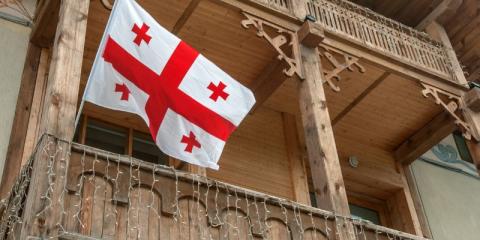Georgian mythology is a rich tapestry of legends and stories that provide insight into the country's cultural heritage. One of the most interesting myths is the story of Kartlos, the founding father of Georgia.
According to Georgian mythology, Kartlos was the grandson of Japheth, one of Noah's three sons. He was the eldest son of Targamos and great-grandson of King Nimrod. When his father died, Kartlos inherited the kingdom and became the first king of Kartli, which is modern-day Georgia.
The story of Kartlos is deeply intertwined with Georgian culture and history, and he is considered a national hero. His name is still used in modern-day Georgia, and it is the root of the country's name. Kartli, the region where Kartlos ruled, was later called Sakartvelo, which means "the land of Kartlos" in Georgian.
Another important aspect of Georgian mythology is the story of the Jesus Robe in Mtskheta. Mtskheta is a historic city in eastern Georgia that was once the capital of the country. According to legend, the robe that Jesus Christ wore during his crucifixion was brought to Mtskheta by a Georgian Jew named Elioz. He is said to have acquired the robe from a Roman soldier who won it in a game of dice.
The robe was eventually brought to Mtskheta, where it was housed in the Svetitskhoveli Cathedral, one of the most important religious sites in Georgia. The cathedral is still standing today, and it is considered a UNESCO World Heritage site.
The story of the Jesus Robe in Mtskheta is an important part of Georgian culture and history. The robe is believed to have miraculous powers, and it is a symbol of the country's strong Christian heritage. The cathedral that houses the robe is one of the most visited sites in Georgia, and it attracts tourists and pilgrims from all over the world.
In conclusion, Georgian mythology is a fascinating subject that provides insight into the country's cultural heritage. The story of Kartlos, the founding father of Georgia, and the Jesus Robe in Mtskheta are just two examples of the many legends and stories that make up this rich tapestry. These stories are deeply intertwined with Georgian history and culture, and they continue to be an important part of the country's identity.
